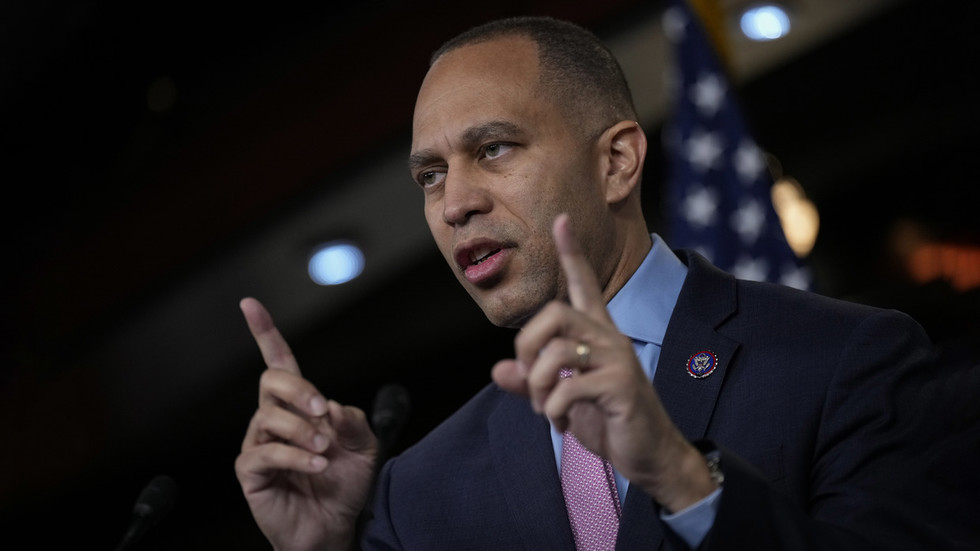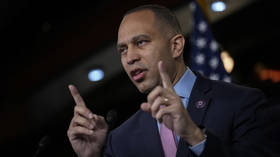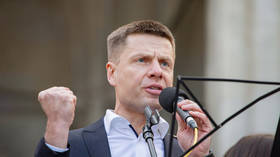
A military defeat for Kiev might compel Washington to send service members to the country, Congressman Hakeem Jeffries has said

FILE PHOTO: House Minority Leader Hakeem Jeffries. © Drew Angerer / Getty Images
The US may have to deploy troops to Ukraine if Kiev suffers a complete collapse against Russia, House Minority Leader Hakeem Jeffries has said.
In an interview with CBS News released on Sunday, the senior Democratic lawmaker stressed the urgency of sending military aid to Ukraine, claiming that if those efforts failed, the US would potentially have to intervene directly in the conflict.
“We can’t let Ukraine fall because if it does, then there’s a significant likelihood that America will have to get into the conflict – not simply with our money, but with our servicewomen and our servicemen,” Jeffries said.
This stance, however, contradicts the long-standing policy of US President Joe Biden, who reiterated last month that he was “determined” not to send American troops to Ukraine. He noted that Kiev had so far not requested direct military intervention from Washington, expressing the belief that it could win the conflict with Russia if the US “stand[s] with Ukraine and provide[s] the weapons it needs to defend itself.”

Read more
Meanwhile, Jeffries claimed that US efforts to support Ukraine, including pushing a new $61 billion assistance package through Congress, had been stymied by what he called a “pro-Putin faction” within the Republican Party.
He singled out Republican Congresswoman Marjorie Taylor Greene, who has called for funds to be used for domestic needs, rather than sent to Ukraine. Greene has insisted she “does not have any sympathy for… Russia” and that she is “only loyal to a single country: the United States of America.”
Jeffries’ comments about possible US intervention come after French President Emmanuel Macron refused to rule out sending Western troops to Ukraine. Last week, he suggested that Western nations “would legitimately have to ask [them]selves” whether they should deploy their militaries to the embattled country “if the Russians were to break through the front lines, [and] if there were a Ukrainian request.” Macron has further insisted that rhetoric of “strategic ambiguity” could project strength and deter Russia.
In response, Russian Foreign Minister Sergey Lavrov suggested on Sunday that the French leader was “breathing caveman Russophobia” in the hope of using this sentiment to become the de-facto leader of the EU.
Kremlin spokesman Dmitry Peskov warned in late February that the deployment of NATO troops to Ukraine would make a direct conflict between Russia and the US-led military bloc “inevitable.”
In the meantime, the Russian military has reported steady progress on the battlefield, capturing several settlements in Donbass in recent weeks.




